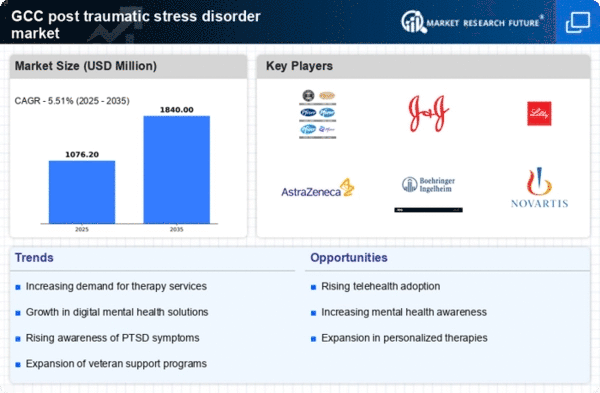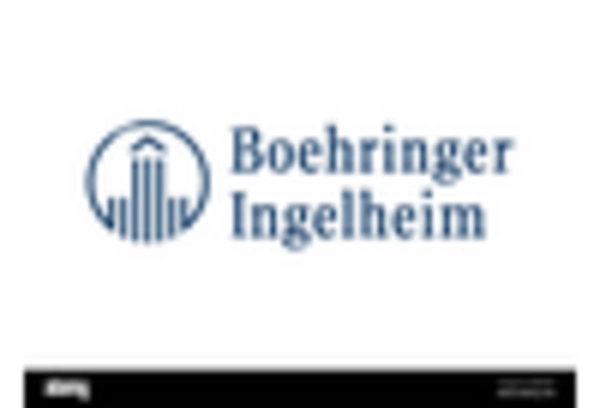Increasing Incidence of PTSD
The rising incidence of post traumatic stress disorder (PTSD) in the GCC region is a critical driver for the post traumatic-stress-disorder market. Factors such as regional conflicts, natural disasters, and societal pressures contribute to the growing number of individuals affected by PTSD. Recent studies indicate that approximately 7-8% of the population in certain GCC countries may experience PTSD at some point in their lives. This increasing prevalence necessitates enhanced treatment options and support systems, thereby expanding the market. As awareness of mental health issues grows, more individuals are seeking help, which further propels the demand for effective therapies and interventions in the post traumatic-stress-disorder market.
Rising Demand for Support Services
The rising demand for support services for individuals suffering from post traumatic stress disorder (PTSD) is a notable driver in the post traumatic-stress-disorder market. As awareness of PTSD increases, there is a growing recognition of the need for comprehensive support systems, including counseling, peer support groups, and community outreach programs. This demand is particularly evident in the GCC, where traditional support structures are evolving to meet the needs of those affected by trauma. The market is responding by expanding service offerings, which may include online platforms for support and resources. This trend is expected to contribute to the overall growth of the post traumatic-stress-disorder market, as more individuals seek assistance.
Advancements in Treatment Modalities
Innovations in treatment modalities for post traumatic stress disorder (PTSD) are significantly influencing the post traumatic-stress-disorder market. The introduction of novel therapeutic approaches, such as cognitive behavioral therapy (CBT), eye movement desensitization and reprocessing (EMDR), and pharmacological advancements, are enhancing treatment efficacy. The market is witnessing a shift towards personalized medicine, where treatments are tailored to individual patient needs. Furthermore, the integration of telehealth services has made therapy more accessible, particularly in remote areas of the GCC. As a result, the market is projected to grow at a compound annual growth rate (CAGR) of around 5-6% over the next few years, driven by these advancements.
Cultural Shifts Towards Mental Health
Cultural shifts in the GCC region are fostering a more open dialogue about mental health, which is a significant driver for the post traumatic-stress-disorder market. Historically, mental health issues have been stigmatized, but recent efforts to normalize discussions around mental health are changing perceptions. Initiatives by local governments and non-profit organizations aim to educate the public about PTSD and its effects. This cultural transformation is encouraging individuals to seek help, thereby increasing the demand for mental health services. As a result, the post traumatic-stress-disorder market is likely to expand, with more resources allocated to treatment and support.
Government Funding and Policy Support
Government funding and policy support play a pivotal role in shaping the post traumatic-stress-disorder market. In the GCC, various governments are recognizing the importance of mental health and are allocating resources to improve mental health services. Initiatives include funding for research, training for healthcare professionals, and the establishment of mental health facilities. For instance, recent budgets have seen an increase in allocations for mental health programs, which is expected to enhance the availability of services for PTSD. This proactive approach by governments is likely to stimulate growth in the post traumatic-stress-disorder market, as more individuals gain access to necessary treatments.

















